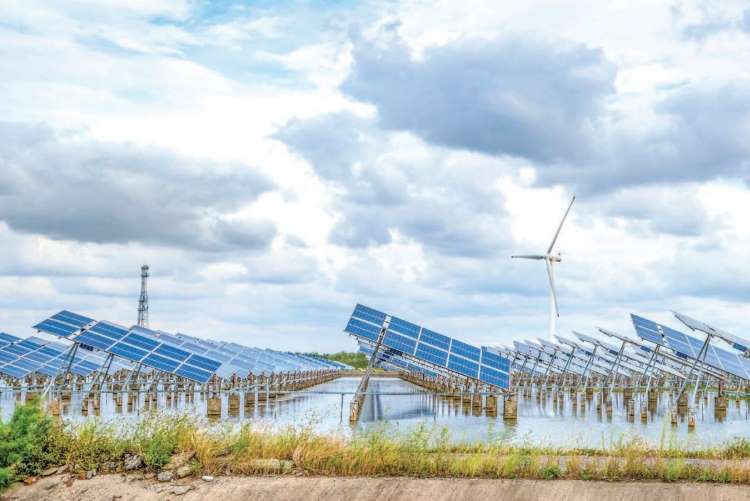
Leading renewable energy project developers, manufacturing companies, banks, and financial institutions have committed nearly $386 billion (around Rs 32.45 trillion) to renewable energy projects by 2030. This was announced during the inaugural ceremony of the 4th RE-Invest Summit, hosted by the ministry of new and renewable energy in partnership with the Confederation of Indian Industry.
India is set to surpass its target of installing 500 gigawatts (GW) of renewable energy by 2030, with public and private sector commitments reaching approximately 570 GW. Among private sector players, Mukesh Ambani-led Reliance Industries has committed to adding 100 GW of renewable energy capacity by 2030. NTPC and ReNew Power follow with commitments of 41.3 GW and 40 GW, respectively.
READ | Fed rate cut looms: Global markets brace for impact
India’s renewable energy sector
India is experiencing a surge in energy demand which will only be met if renewable energy capacity is rapidly scaled up. Currently, India is the fourth largest renewable energy producer globally, and its ambitious goal to triple installed RE capacity by 2030 is critical to realising the country’s vision of a green economy.
India has already made significant progress, particularly in solar energy, where capacity has increased by 33 times since 2014. However, some key targets have been missed. For example, the goal of installing 100 GW of solar power by 2022 was not achieved, with the deadline now extended to 2026. Policymakers and the government must address the reasons behind these setbacks and outline steps to avoid future delays.
Challenges in rooftop solar sector
Industry experts have pointed to the slow adoption of rooftop solar installations as a major reason for the missed targets. In response, the government has launched initiatives like the Pradhan Mantri Suryodaya Yojana (PMSY), aimed at bringing solar power to one crore households. This decentralised approach could help address gaps in rooftop installations.
Nevertheless, the high cost of solar installation remains a significant barrier for individual households, despite government subsidies. Additionally, the policy mandating the purchase of solar panels and inverters only from MNRE-approved vendors has restricted consumer choice and created further hurdles.
Moreover, businesses often prefer to serve commercial clients, as achieving economies of scale with individual households remains challenging. The intermittent nature of renewable energy supply also complicates the management of the grid. While Gujarat, the leader in rooftop installations, has made strides with awareness campaigns and timely subsidy disbursements, it continues to face difficulties with energy supply consistency.
Infrastructure and land availability
The ministry has set an ambitious target of adding 50 GW of renewable energy capacity annually until 2028. However, issues such as infrastructure, raw material shortages, and land availability could impede progress. A study by the Council on Energy, Environment and Water (CEEW) estimates that to meet India’s decarbonisation goals, the country may need 4.9% to 6.09% of its landmass by 2100 for power generation—an area roughly the size of Gujarat. Scaling responsible renewable energy deployment is not just necessary but imperative for the country’s sustainable future.
One aspect that could be added is the role of international collaboration and financing in India’s renewable energy journey. While the text emphasises domestic commitments and challenges, it lacks discussion on the global context. India’s renewable energy sector can benefit from international partnerships, both in terms of technology transfer and financial assistance.
Multilateral institutions like the World Bank and private international investors can play a pivotal role in closing the financing gap, while collaboration with countries leading in renewable technology, such as Germany or Denmark, can accelerate innovation in areas like energy storage, grid stability, and offshore wind. These partnerships can also facilitate knowledge sharing on best practices for scaling renewable projects responsibly and sustainably.
In addition to overcoming evident challenges, India must emphasise responsible and sustainable practices in its renewable energy expansion. Land use, community impacts, and environmental concerns must be carefully managed to ensure the long-term success and acceptance of RE projects. Developers, in particular, play a pivotal role in fostering responsible practices and promoting transparency and accountability throughout the lifecycle of these projects.
For India’s renewable energy sector to thrive, the government must introduce more comprehensive policies and initiatives. By addressing these challenges head-on, India can position itself as a global leader in the renewable energy revolution.
